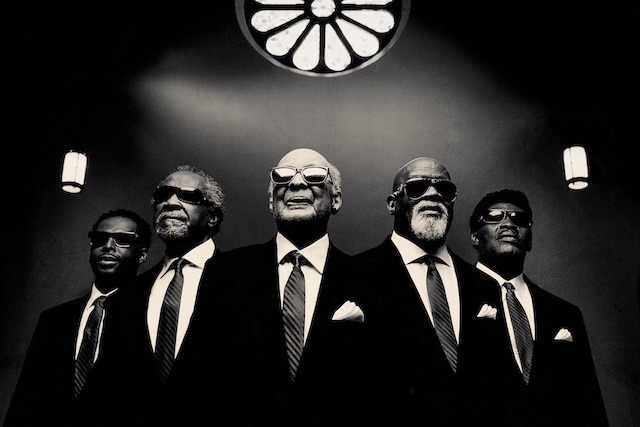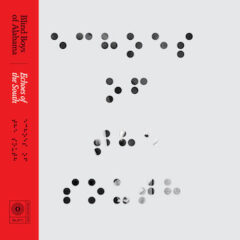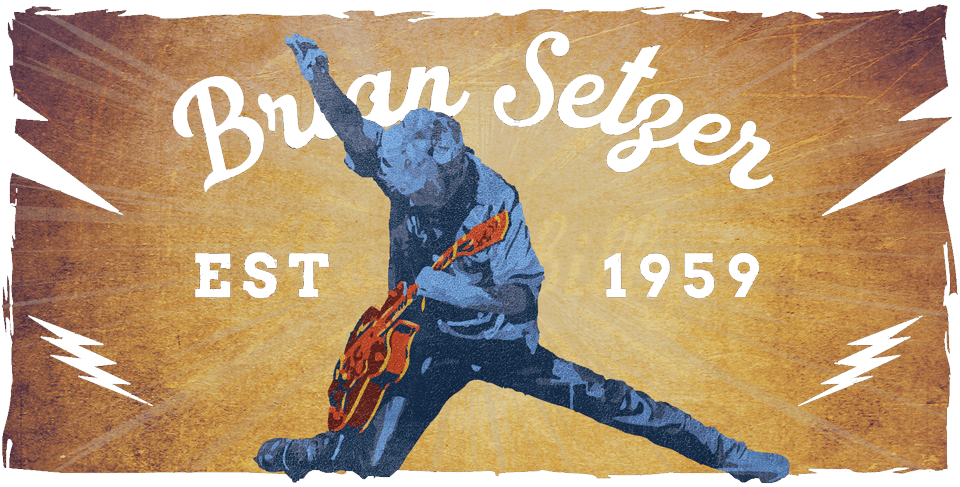
Blind Boys of Alabama: ‘We don’t want people to come to our concerts and leave the same way they came. We want to give them a better outlook on life.’
Reviews by David McGee
 ECHOES OF THE SOUTH
ECHOES OF THE SOUTH
Blind Boys of Alabama
Single Lock Records
From a live housewrecker such as the scalding album opening plea for divine guidance, a live version of “Send It On Down,” to the deep southern soul groove and earnest testifying closing the album on a thoughtful note in Stevie Wonder’s 1970 hit “Heaven Help Us All,” the Blind Boys of Alabama are fully and powerfully present in sending messages of hope, resilience, faith and love on Echoes of the South, the group’s first new album in six years and, amazingly, its first album recorded completely in Alabama. Titled after the Birmingham, AL, radio show on which the group (then known as the Happy Land Jubilee Singers and inspired by the Golden Gate Quartet) launched its legendary career some 80 years ago, the veteran lineup on this album has since undergone yet another transition, as 91-year-old Jimmy Carter (an eloquent spokesman always) retired from performing and longtime members Paul Beasley and Benjamin Moore have since passed away. So this final testimony from one of the longest serving Blind Boys lineup carries even heavier weight with the loss of three beloved members. No matter their infirmities, this configuration of Blind Boys delivered a seamless fusion of disparate styles into a southern gospel whole that moves the body and surely as it uplifts the soul.

‘Send It On Down,’ Blind Boys of Alabama, from Echoes of the South

‘Friendship,’ written by Pops Staples, Blind Boys of Alabama, from Echoes of the South
With a small combo—pianist Phil Cook, bassist Dennis Crouch, drummer Chad Gamble–providing tasty, understated support, the quintet, sharing lead vocal duties, gracefully navigates a measured arrangement of Pops Staples’ conciliatory message for a divisive era, “Friendship,’’ as seamlessly as it gets lowdown and funky on the percolating salvation cry, “Paul’s Prayer” and as naturally and emphatically as they convey Curtis Mayfield’s message of persistence, moral strength and faith against a stark instrumental backdrop in “Keep On Pushin’.” There’s nothing surprising about the breadth and depth of the music; it’s always surprising how deep the Blind Boys’ sound can penetrate a listener’s very being. Jimmy Carter said it best when asked about the group’s higher purpose. “From the very first show,” he observed, “the Blind Boys of Alabama have always tried to lift people up and make them feel good. We don’t want people to come to our concerts and leave the same way they came. We want to give them a better outlook on life.”

‘Keep On Pushing’,’ written by Curtis Mayfield, Blind Boys of Alabama, from Echoes of the South

‘Heaven Help Us All,’ written by Ron Miller, first recorded by Stevie Wonder in 1970, performed by Blind Boys of Alabama on Echoes of the South
If a world in upheaval can’t be moved to “a better outlook on life” by these echoes from the south, then, indeed, Heaven help us all. –David McGee
***

Johnny Rawls: Making every moment count…
Life Lessons for the Taking
 WALKING HEART ATTACK
WALKING HEART ATTACK
Johnny Rawls
Catfood Records
As, arguably, the preeminent practitioner of soul blues, Johnny Rawls offers a short course in how it’s done right, with wit and passion, on Walking Heart Attack. The Rawls-penned title track (co-written with Bob Trenchard, founder of Catfood Records and the bassist in Rawls’s stalwart backing band, The Rays) sets the tone in kicking off the festivities with a jittery rhythmic thrust, pumping horns and a flirty female chorus (Janelle Thompson and Shakara Weston) setting the stage for Rawls’s hefty vocal describing a knockout gal he has his eyes and heart set on. Settling into a deep, driving, horn-fueled southern soul groove on “Trying to Live My Life Without You,” a tune associated with the late Otis Clay, Rawls is at his expressive best in delivering the lingering ache of a bad breakup. By the third song, Rawls’s own self-empowering soul ballad, “Free” (“Don’t need money to feel rich/don’t need a shovel to dig a ditch/don’t need a mansion just to sleep/don’t need no help to get on my feet/I thank God I’m free…”), he’s contemplating shaking loose from life’s surly bonds and materialism to “be true to myself,” a change the gravitas in his voice tells you is going to be challenging but the gospel backdrop tells you he has the heart to see it through,

‘Born All Over,’ written by O.V. Wright, Johnny Rawls’s former boss, a tribute on Walking Heart Attack

‘Free,’ written and performed by Johnny Rawls, from Walking Heart Attack
In short, Johnny Rawls makes every moment count in songs by turns revelatory, reflective and revealing (one tune, his emotional cover of his former boss O.V. Wright’s blunt confessional, “Born All Over,” is actually all three, with a gospel underpinning to boot). Life lessons are here for the taking. –David McGee
***

Stray Cat Cuts Loose!
 THE DEVIL ALWAYS COLLECTS
THE DEVIL ALWAYS COLLECTS
Brian Setzer
Surfdog Records.
Once again demonstrating his unflagging affinity for flat-out, ass-quaking, oxygen depleting, guitar-driven rock ‘n’ roll, Brian Setzer arguably has never been better at it than he is on the red-hot The Devil Always Collects. From the merciless six-string fusillade unleashed on the album opening “Rock Boy Rock” (goosed along by a bevy of distaff backup singers chanting with gusto and innuendo, “Rock, boys, rock/plug it in the box and show me what you got!”) to the lusty blasts of speed-picked hollow body fury reinvigorating Del Reeves’s twangy 1965 country chart topper, “The Girl on the Billboard,” and the Stones-ish overtones of the stomping wink-and-a-nod of the horn-infused “She’s Got a Lotta…Soul,” Setzer keeps the pedal to the metal, his expressive singing perfectly complementing the multitude of white-hot riffs and multitudinous dazzling instrumental ideas he offers with unceasing grandeur.

‘The Girl on the Billboard,’ a #1 country single for Del Reevers in 1965, revived by Brian Setzer on The Devil Always Collects

‘She’s Got. Lotta…Soul,’ Brian Setzer, from The Devil Always Collects
Aside from the skirt chasing going on, Setzer celebrates unalloyed, testosterone-rich music making in a blitzkrieg assault titled “Play That Fast Thing (One More Time),” its arrangement propelled by rollicking blues piano and powerhouse drums framing the Stray Cat as he works the length and breadth of his instrument’s tonal possibilities to maximum propulsive effect. This is the best unadulterated rock ‘n’ roll album of the year, guaranteed to rock your town and mine tonight and every night hereafter. To quote Little Richard: “Shut up!” —David McGee


